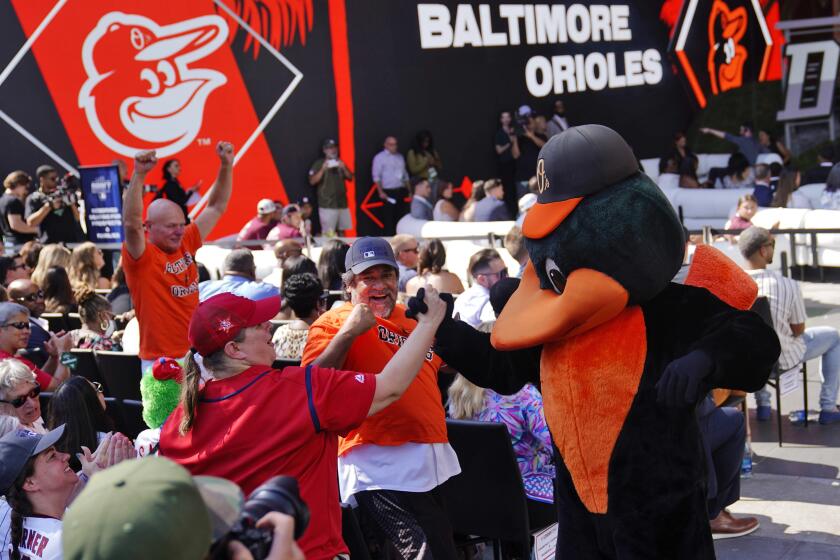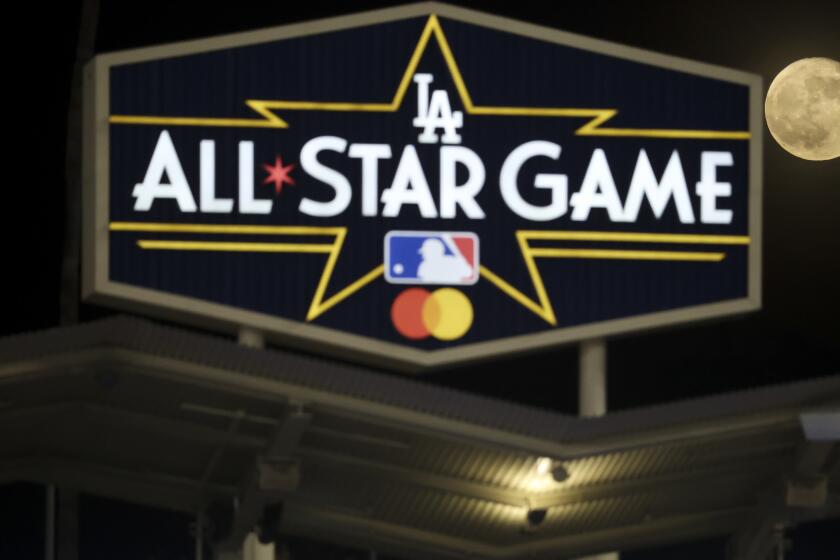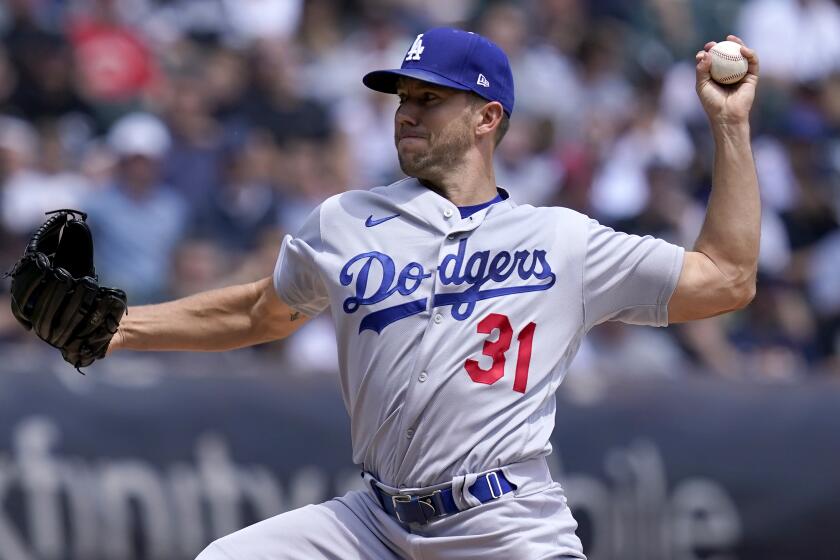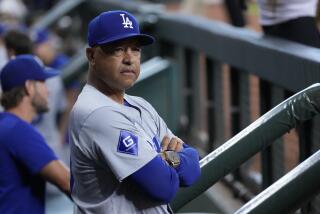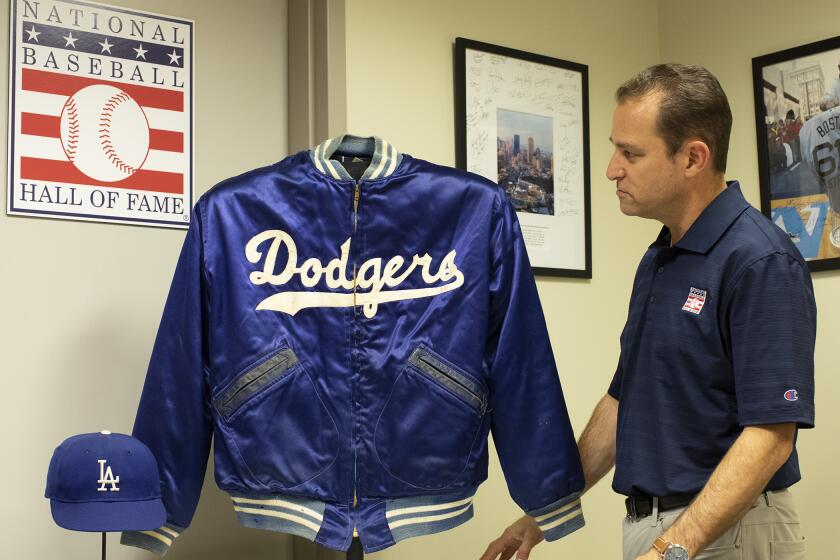Dodgers dip into talent pool that nurtured Will Smith to find latest top pick
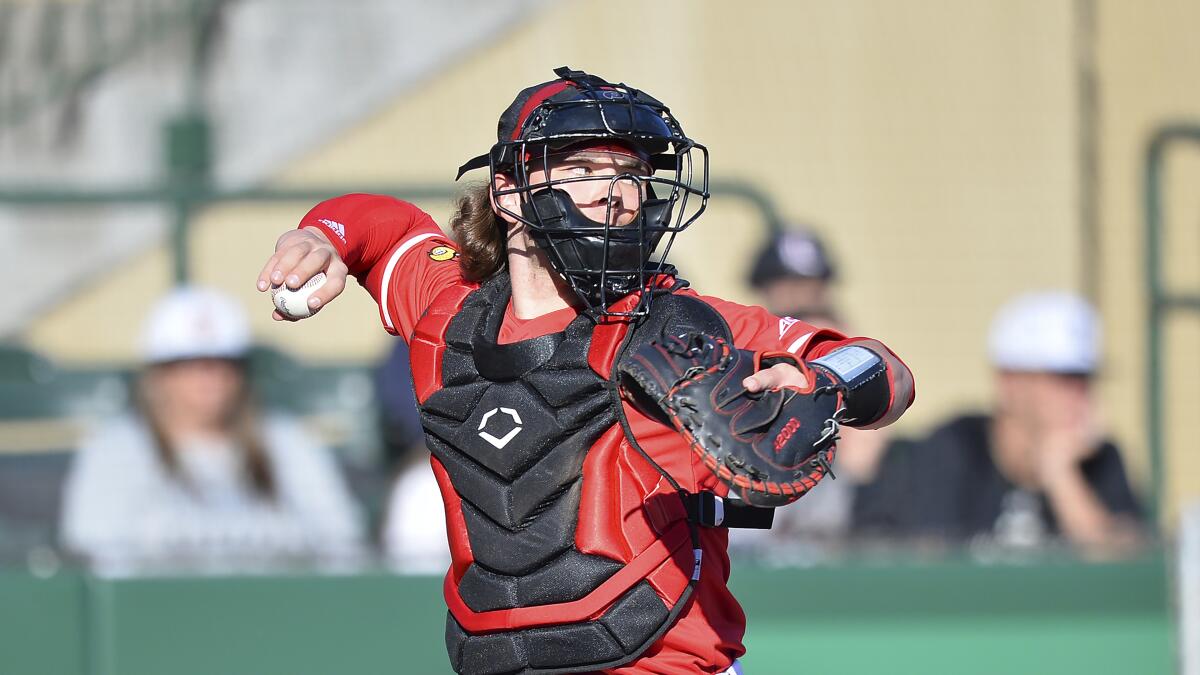
- Share via
It’s been six years since Dodgers catcher Will Smith last played for the University of Louisville.
But in the Cardinals baseball program, he was part of a lineage of catching excellence that half a decade later continues to live on.
Smith took the lessons he learned from a couple of older senior backstops when he first arrived and passed it on to his successor, Zeke Pinkham.
Pinkham then became a mentor to Henry Davis, who last year was selected first overall in the Major League Baseball amateur draft.
Before Davis left, he kept the tradition alive, providing more veteran leadership to the program’s next young catcher, Dalton Rushing.
By holding its annual draft outdoors for the first time at L.A. Live, MLB adopts a festival-like atmosphere that could be a model for drafts to come.
And on Sunday, on the first night of this year’s MLB draft, it all came full circle — for Louisville and the Dodgers.
With their first pick of the draft, the Dodgers selected Rushing in the second round at 40th overall.
The team didn’t have a first-round pick after exceeding the competitive balance tax threshold last year.
Yet the Dodgers added another highly touted catcher to an organizational talent pool that has Smith excelling at the major league level and top prospect Diego Cartaya dominating in high A of the minor leagues.
“The Los Angeles Dodgers do a great job with catchers,” Rushing said on a videoconference call from Louisville after the pick was made. “Will Smith has obviously shown the ability he has behind the plate. I can’t explain how excited I am to get going.”
Rushing was ranked the 50th-best prospect in the draft class by MLB.com, lauded for his left-handed power swing — he hit 23 home runs this season, tied for fourth most in Louisville history and 16th most in the nation this year — but also facing questions about his future behind the plate.
During his first two seasons at Louisville, he served as Davis’ backup, splitting his time defensively between catcher and first base. This year, he started 63 games overall but only 36 at catcher, again spending time at first base and designated hitter.
The Dodgers, however, are high on Rushing’s potential as a catcher.
“We really believe the catching outcome is going to be possible and really going to be a path he can do,” said Billy Gasparino, the Dodgers’ vice president of amateur scouting. “I think most of the industry had doubts … But some of the sporadic playing time back there clouded what we think is a talented catcher.”
Louisville coach Dan McDonnell, speaking by phone Sunday night, agreed.
“He did enough behind the plate to show his skill set,” McDonnell said. “He hasn’t caught a ton at Louisville and has gotten better, so [think about] how much better [he’ll get] when you stick him back there for 100-something games.”
Another benefit the school’s 16th-year coach pointed out: “It’s a fresh body. This is not a kid who’s been crushed the last three years.”
Quite the contrary, McDonnell said.
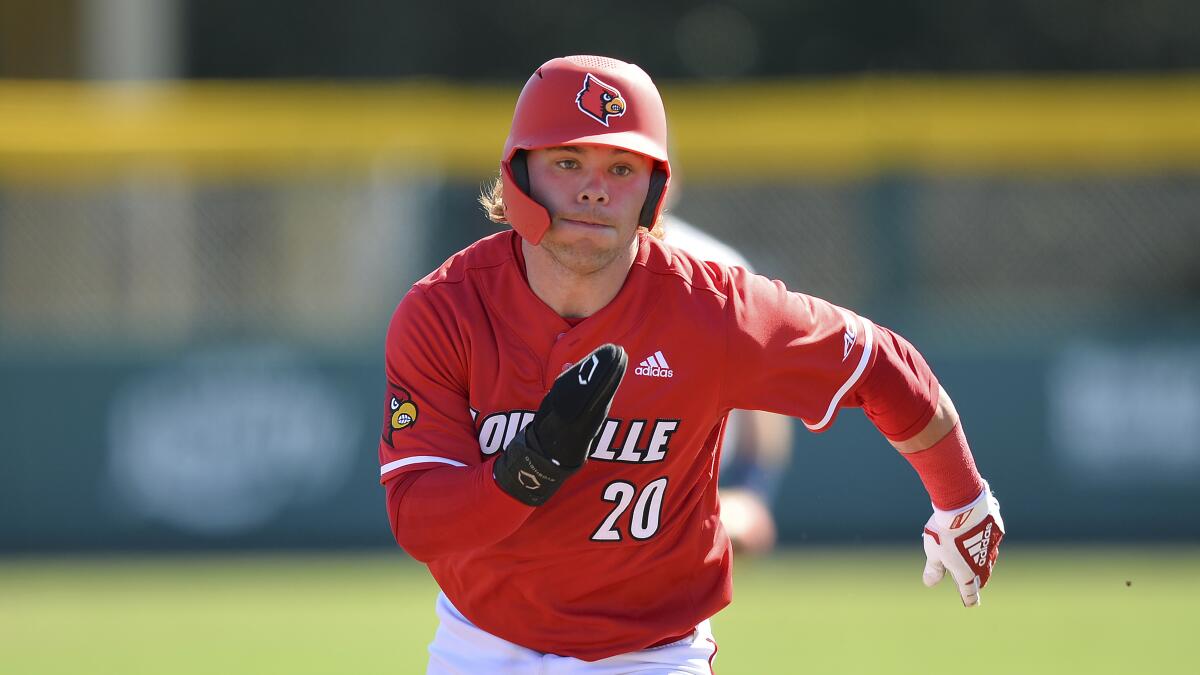
When Rushing arrived at Louisville three years ago, he was a highly regarded recruit with several offers from Southeastern Conference powerhouses but also a teenage prospect who knew he needed to physically change.
McDonnell said in his freshman year, Rushing was already strong with a rare left-handed power at the plate. But he was also “a thick, baby fat, pudgy kid.” He was nicknamed Gummy Bear and Mini Fridge. As a high school football player, he played “somewhere on the line,” McDonnell added. “It was just a thick kid.”
At Louisville, however, Rushing got into a weight room program. He remade his diet with help from the team’s nutritionist. He worked on increasing his flexibility and all-around athleticism.
And, after limited playing time during his first two seasons, he blossomed as one of Louisville’s best hitters this year, earning second-team All-Atlantic Coast Conference honors as well as All-American consideration from several outlets after batting .310 and driving in 62 runs on a Cardinals team reached an NCAA tournament super regional.
Dodgers pitcher Tyler Anderson has chronicled his career with notebooks, a tactic he learned from his college coach George Horton.
“The obvious stick out is it’s a power left-handed bat,” McDonnell said. “You see guys go in the first round who hit 10 to 12 home runs in college. This guy hit 23. And our park is not really home run-friendly and he hit a lot of no-doubters.”
Rushing watched Sunday’s draft from the “Omaha room” at Louisville’s facility, the same place another recent Louisville product, pitcher Bobby Miller, celebrated his selection by the Dodgers in the first round of the 2020 draft.
“I knew as soon as I got that call, it’s a great fit,” Rushing said. “Louisville players do great in the Dodgers organization. I’m excited to get going.”
Behind the plate, there is no better example than Smith, who had already reached out to the club’s newest prospect — and his alma mater’s latest catching product — within minutes of his selection Sunday night.
“There’s a standard there when you catch in our system,” McDonnell said.
And just like with Smith, the Dodgers are hoping it will translate to professional success again with Rushing.
More to Read
Are you a true-blue fan?
Get our Dodgers Dugout newsletter for insights, news and much more.
You may occasionally receive promotional content from the Los Angeles Times.

